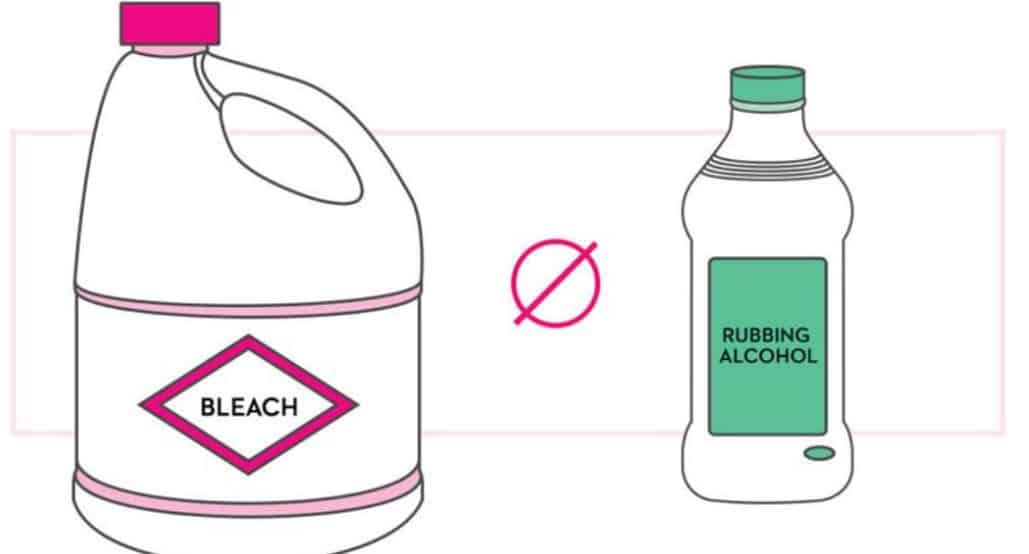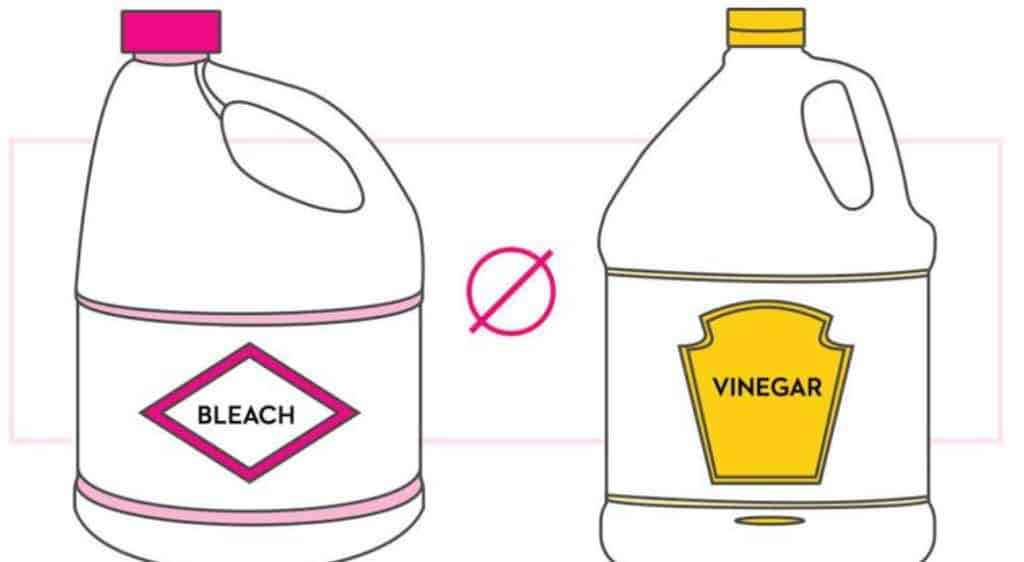Your home is a place that needs to be full of happy and positive vibes. You find comfort, love, and create memories in your home. It is a fantastic feeling while you create beautiful memories and absorb the warmth. An untidy home is never a good site, and an organized and clean home embeds quality in your life.
We use numerous cleaning agents to keep the home tidy, but you must also be aware that you can not mix all types of cleaners.
Products That You Must Never Combine
As you know, mixing cleaning products can result in toxic fumes and can be harmful. Let us talk about 10 cleaners that you must never combine.
Bleach and Vinegar

Bleach has chlorine which quickly reacts to the acetic acid found in vinegar. As a result, the combination of these two cleaners produces harmful chlorine gas. Any exposure to the gas may result in irritation in the eyes and throat. Higher exposure may even lead to chest pains, swelling in the throat, eyes, lungs, and blisters on the skin.
Ammonia and Bleach

Bleach and ammonia combined produce chloramine gas that may again irritate the eyes and throat. Both these cleaning products have a strong smell, so you must also have good ventilation in the area you are using them. Overexposure to these products may be toxic.
Bleach and Rubbing Alcohol

When mixed with isopropyl alcohol or ethanol present in the rubbing alcohol, sodium hypochlorite present in the bleach produces chloroform. Chloroform is harmful as it can be easily inhaled or absorbed by your skin, leading to a damaged nervous system. It can also damage the eyes, skin, lungs, kidneys, liver, and other vital organs.
Hydrogen Peroxide and Vinegar

If you combine vinegar with hydrogen peroxide, it will produce peracetic acid. The acid is a corrosive liquid. The skin can absorb peracetic acid easily, and this toxic compound can lead to a burnt mucous membrane of the throat, mouth, and esophagus. It needs to be heavily diluted before use and must never use the two cleaners one after the other to clean any surface. Rinse the surface properly before using the second cleaner.
Pesticides and Water
Everyone uses pesticides at home to get rid of insects and bugs. But you must check the concentration of the pesticides before use. Many pesticides are concentrated enough and leave a residue that produces devastating phosphine gas when combined with water. Get rid of those pests with non-toxic, natural pest control methods, or contact a professional.
Different Drain Cleaners

The drain cleaners of different companies have different chemical combinations for better effectiveness and cleaning power. Some may be alkaline, while some may be acidic. If you use two other cleaners simultaneously, a chemical reaction may produce corrosive ingredients resulting in an explosion.
Bleach and Stain Remover

A stain remover is acid-based. When you combine it with bleach, it will result in the production of chlorine gas. Exposure to the gas may result in irritation of the nose, throat, eyes, and lungs.
Castile Soap and Vinegar
Castile soap and vinegar may not be dangerous when combined but have terrible cleaning properties when together. Combining castile soap with vinegar produces an oily mixture because of the acid present in vinegar which breaks down the soap
Bleach and Lysol

Lysol is a widely used disinfectant. You must never mix it with bleach. The chemical components in Lysol get oxidized by the combination of bleach and may produce toxic compounds that irritate the skin and eyes.
Bleach and Oven Cleaner
Bleach, when combined with an oven cleaner, may produce chlorine gas. Exposure to this gas may lead to irritation of the throat, nose, eyes, and lungs. You must not try the combination as it may lead to the production of other toxic compounds too.
Conclusion
We have seen that a combination of different cleaners may lead to the production of toxic substances. You must always be careful while using the cleaners and ensure that the room has adequate ventilation. You must keep the windows open and switch on the ceiling fans. Switch on the exhaust fan in the bathrooms to dry up the space and avoid passive combinations.
It would help if you also protected the exposure of such products on the skin. For example, use reusable or rubber gloves while cleaning to prevent any exposure to the skin. If you feel itchy, dizzy, or sense a burning in the throat, lungs, eyes, or skin, you must immediately get away and stop cleaning. Take care of all these points and keep yourself safe while cleaning your home.


